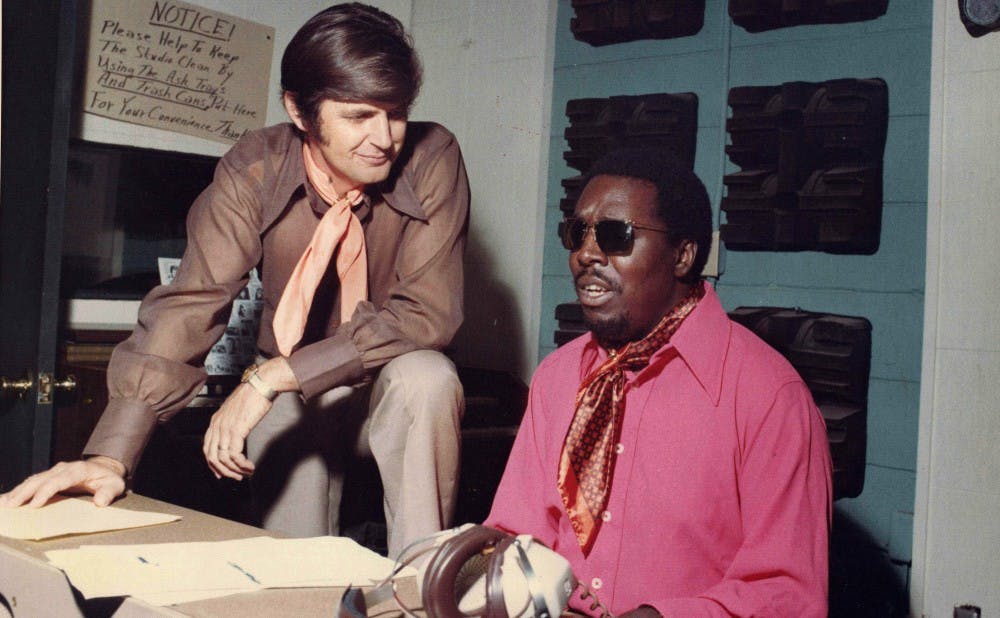Dir. Greg 'Freddy' Camalier
Magnolia Pictures
4/5 stars
In an Alabama backwater town called Muscle Shoals, Aretha Franklin is pouring her soul out into a microphone. Here in the wooded country, far removed from the urban turmoil and excess of NYC and LA, FAME studio has recorded—and still records—many of the great names in the music industry from the past 50 years. The Rolling Stones, Clarence Carter, The Allman Brothers and even Lynyrd Skynyrd have passed through specifically to tap into the otherworldly musical energy that pervades this sleepy little town.
Directed by Greg 'Freddy' Camalier, "Muscle Shoals" recounts the story of FAME studio founder Rick Hall and his cohorts in the business. Hall had several professional and personal tragedies occur before and after he founded his now legendary recording studio. These mishaps propel the narrative along, forming an engaging story of how a “bunch of white dudes that look like supermarket workers” played and recorded with some of the baddest black musicians, in a time when Governor George Wallace stood outside the University of Alabama’s doors to prevent any black students from enrolling in his state’s flagship university. The studio is thus not only presented in the light of a brilliant center for the formation of soul, rock and R&B masterpieces but also as an experiment in collaboration and how shared passions can cause deeply-entrenched social values to dissipate effortlessly.
The intro sequence is littered with shots of pastoral panache that would make Terrence Malick salivate. In it, the narrator relates the story of what the local Native Americans call ‘The Singing River,' starting the movie off with a spiritual undertone. We are then thrust into Rick Hall's world, sharing in the richness of his musical odyssey. The narrative bifurcates intermittently but always compiles itself without too much dramatic friction, ensuring that the essence of the story can be related and the viewer does not get mired in unnecessary details.
Camalier uses a variety of interesting interview locales, taking advantage of the area’s natural beauty and the hallowed halls of the recording studio to flesh out his subjects with a soft but still probing hand. However, the sometimes distracting camera movement in interviews (yes, it is possible to overuse a slider) jolts the viewer in an unintentional way but overall does not detract from the experience.
The film is, with the exception of the opening sequence, formally uninventive. But, the script does insert narrative-styled B-roll into the documentary framework of the film with assured flair. Live recordings and pre-recorded cuts of songs also integrate themselves smoothly into the soundscape of the film. And this is where the film should—and does—shine. Your brain is pummeled left and right by musical heavy hitters like Percy Sledge’s potent crooner, "When a Man Loves a Woman," and Lynyrd Skinnard’s freewheeling and evocative rendition of "Freebird" from the get-go. The onslaught only increases in intensity as the documentary progresses.
Few music documentaries are as revelatory or emotionally warm as this one. With a scintillating soundtrack and an engaging cadre of characters, "Muscle Shoals" unveils an overlooked piece of the American musical heritage and is essential viewing for anybody that has a soft spot for soul and R&B.
Get The Chronicle straight to your inbox
Signup for our weekly newsletter. Cancel at any time.

